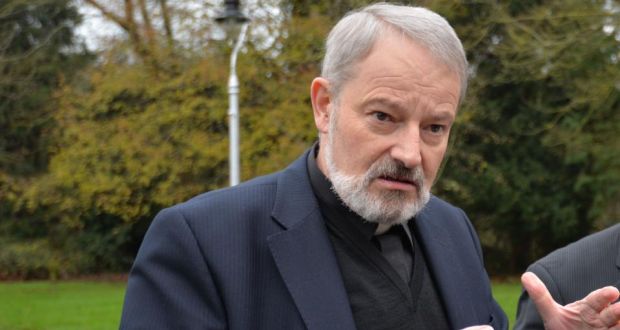The rejection of a Christian ethics course by Mary Immaculate College (MIC) has been strongly criticised by the Bishop of Elphin, who has speculated in correspondence to the president of the college that he and the college must have come under “some kind of pressure”.
A strongly worded exchange between MIC President Eugene Wall and Bishop Kevin Doran regarding the Certificate in Christian Ethics in Healthcare being disallowed by college authorities can be revealed by this paper after a Freedom of Information request.
In an initial letter sent in October last year Bishop Doran questioned whether the decision to drop the course was due to concerns about “reputational damage resulting from a course in Christian ethics prepared and delivered by its own staff”.
Implications
“If this is indeed the case, I would urge you to reconsider your decision, not only for the sake of this programme, but because of the potential implications of your decision for the possibility of doing Catholic theology in the public space,” he wrote.
He stated that he recommended MIC develop the programme because of its profile as a “centre of learning for Catholic theology”, their staff had the expertise, and because the programme appeared to be “fully consistent with the college’s own strategic plan”.
The course was developed to help those struggling morally in Ireland’s changing healthcare landscape
Defending MIC, Prof. Wall replied saying there is “unmistakable evidence” that the college “is steadfastly committed to its Catholic mission and identity”.
He continued saying MIC is accountable to the Department of Education and the Higher Education Authority regarding “operations and strategic direction”.
“Some commentators fail to grasp that it is in a fundamentally different position from Catholic universities and colleges in the USA which are private institutions and, consequently, enjoy very considerable autonomy,” he said.
“Responsibility for the management of the college is entrusted to the Executive Team. It acts at all times in a judicious and informed manner to evaluate and safeguard the college’s strategic interests.”
Bishop Kevin, in his response, agreed that MIC always demonstrated a “serious commitment to its mission and identity”.
“Your letter would suggest that you have come under some kind of pressure not to offer the course and that is unfortunate,” he said, adding that as far as he is a “commentator” he wanted to note the “apparent divergence between this decision and the clear intention expressed in your strategic plan”.
Prof. Wall did not reply to the suggestion in the documents seen by The Irish Catholic, nor is there any evidence to suggest that he did come under pressure.
When asked why the course was disallowed, a statement sent to this paper by MIC said they had no plans to expand its programmes in the area of professional healthcare, “particularly where such programmes would necessitate a diversion of resources from MIC’s core programmes”.
However, documents in the FOI state the course was to be self-funded and would need minimal staff.
In late 2015 the Catholic Bishops Consultative Group on Bioethics began working on a Code of Ethical Standards for Healthcare aimed at supporting healthcare practitioners and those interested in the quality of care for the sick. It was decided by Ireland’s bishops it would be more effective if it was connected to an academic programme.
The certificate was in the works for 18 months and was developed by the Irish Institute of Pastoral Studies at MIC. About three months after receiving academic approval, members of the Executive Team noted on September 12, 2019, “that the proposed Ethics in Healthcare programme remains unapproved”.
Contacted by this paper, three bishops who are on the Board of Trustees of the College Bishop Brendan Leahy of Limerick, Bishop Kieran O’Reilly of Cashel and Emly and Bishop of Kerry Ray Browne did not comment when asked whether they intervened or questioned the decision to reject the course.


 Chai Brady
Chai Brady Bishop Kevin Doran
Bishop Kevin Doran 